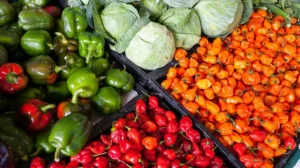Food, a fundamental aspect of human survival, is intricately tied to global politics and trade. This article explores how geopolitical events and decisions affect the production, distribution, and availability of food, and how they can influence food security worldwide.

The Global Food System: Food production and distribution are a complex global network. Many countries rely on imported goods to meet their food demands, making them vulnerable to disruptions caused by geopolitical factors.
Trade Policies: Trade agreements, tariffs, and trade disputes can impact the flow of food across borders. Political decisions regarding trade relationships can affect the availability and affordability of certain foods.
Climate Change and Conflicts: Geopolitical instability and climate change are interconnected. Environmental degradation and resource scarcity driven by climate change can lead to conflicts that disrupt food production and distribution.
Food Security Concerns: Geopolitical conflicts and trade disruptions can lead to food shortages, price increases, and reduced access to essential nutrients. Vulnerable populations are most affected by these challenges.
Global Cooperation: Addressing the geopolitical effects on food requires international cooperation and diplomacy. Multilateral efforts are essential for ensuring global food security and sustainable agricultural practices.
Understanding the intersection of geopolitics and food is crucial in addressing global food security challenges. It highlights the importance of political decisions in shaping the world’s food systems and the need for strategies that promote resilience and equitable access to food resources.




